
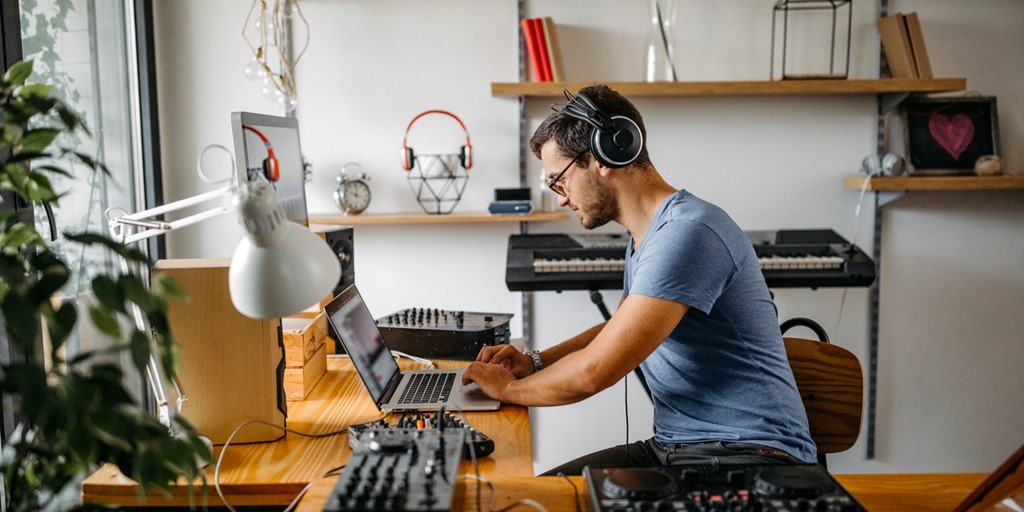
Whether you’re a fully-fledged Ibiza DJ regular or just starting out, having good home DJ set ups are vital.
To get ahead of the game in this business, practice is essential. Simply having a go allows you to create space to work out new beats and produce high-quality sounds.
Thanks to new technology, the days of being faced with an intimidating set of equipment are gone. Forget the need for full PA sound systems, turntables, CD players and speakers. Instead, with the creation of the humble laptop, you can now create far more simplified home DJ set ups. Today, a computer can control most of the equipment you need.
However, there are a few more things you’ll want to consider, apart from investing in a quality computer. If you think this may be a possible career or even a profitable side hustle, you’ll want to make the right choice when it comes to building a home DJ set up. With such a variety of equipment on the market, we’ve outlined the ultimate guide to help you consider everything from buying the right equipment to where to place your DJ set up.
What kind of DJ do you want to be?
Before jumping into investing in a state-of-the-art computer, turntables and mixers, let’s take it back to the basics and consider what kind of DJ you want to be.
Firstly, if you’re a beginner, you might want to identify your ‘muse’. Who in the DJ world inspires you? What kind of music would you like to play? Do you want to specialise in a genre or to be a master of all music? The possibilities are endless. We’ve created a list of the ‘Most Influential DJs’ to help you get started and find your feet within the industry.
For those more experienced, you might want to set out some goals for your home set up. Is your aim to flesh out some new beats before you share them with managers or the public? Are there any skills you’d like to work on, such as phrasing—where you’re aligning the phrases of two tracks in a mix?
Create a list and have this in mind when setting up your space.
If your dream is to turn your DJ hobby into a job, you may want to consider what venues you’d like to play. Are you looking to perform at big nightclubs, or are you looking to do something more niche, such as wedding DJing?
Related: How To Get Wedding DJ Gigs
DJ set up location
If you’re setting up your DJ space at home, considering the location within your house is essential.
You need to find a space that ergonomically suits you and creatively helps you produce your best work.
You may want to consider the following questions to help you locate the ideal space for your DJ set up:
- Do I work best in light or darker spaces?
- Can I work with distractions around me, such as in the communal family room or a space with a TV? Would I prefer a complete focus on my DJing?
- What helps me best get into the zone? Is it bright colours? Is it images of inspiration, such as posters of your DJ muse?
Aside from working out the best place to get in the zone, you will also need to consider a few practicalities of your space. For example:
- Will the location in your home fit your equipment? This one may be hard to answer until you have read our equipment section
- Noise level. Will you be playing a lot of your music out loud at high volumes? If so, you may want to consider a space that will not disturb neighbours or other household members
- Plug socket. This may seem simple, but it’s very easy to forget. There’s nothing worse than configuring the perfect location and then realising you can’t power any of your equipment
Budget
It’s not the most fun part of creating home DJ set ups, but budget is essential in deciding what equipment you can buy.
If you’re already an established DJ, you may only need a small budget for adding extras, such as upgrading your software or increasing the number of speakers you have.
Related: The 7 Best Powered Speakers For DJs [April 2021]
For a beginner, things can feel quite daunting as you’ll probably want to try and invest in some good quality equipment. However, as you’re just starting, choosing a lower equipment spec can help save the pennies.
As well as choosing a more affordable spec, the simplest home DJ set ups only need a computer, laptop or tablet and a DJ controller that combines both aspects of a mixer and turntable on one device. We’ll be running you through a list of the equipment to invest in, but helping you may also want to consider our list of The Top 7 DJ Controllers.
Equipment
Now we’re getting into the part every aspiring or fully-fledged DJ loves, the equipment.
When it comes to DJ equipment, the possibilities are endless. You can choose to have a streamlined DJ set up, which only really requires a laptop with the right software, two turntables, and/or a mixer.
But, as this is the ultimate guide, we’ll be taking you further than the streamlined approach and jumping into a core list of accessories and gadgets.
Beginner tip: Though you’re a beginner now, if this is a long-term passion, then you may want to consider the life span and longevity of the equipment you’re investing in. Be sure to pick something that will suit your beginner needs for now but will also be worthy of your skills once you’ve become more experienced.
Related: The Best Home DJ Equipment
Computer
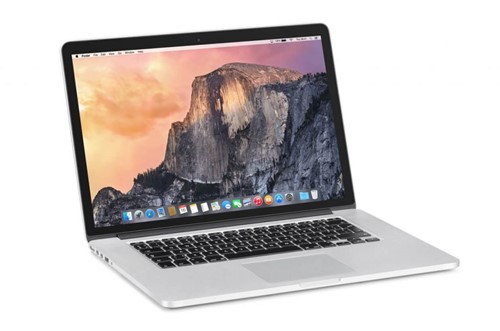
Your computer will probably be your most fundamental and important piece of DJ kit.
We say computer, but this can be a desktop, laptop or even tablet, it’s your choice. If possible, try to ensure that your device is of high quality to cope with the different DJ software you intend on using.
Also, having something portable such as a laptop or tablet will make it easier to bring your work with you to gigs or even other studios.
If we’re getting technical, you’ll want to take note of your devices ‘RAM’ (random-access memory) and its processor.
The amount of RAM will depend on the software you want to run. For most mainstream top DJ applications, you will only need an Intel Core i5 processor and 4GB of RAM. However, if you’re looking to create your music and beats, 8GB of RAM is suggested.
The more GB of RAM you have, the more expensive your device will be, so it’s always best to double-check the requirements of any software you’re interested in before making a purchase.
Music Critic recommends Mac laptops as they all have powerful processors and come in various sizes. Their top three includes:
- MacBook Air
- MacBook Pro
- Apple MacBook
Controller
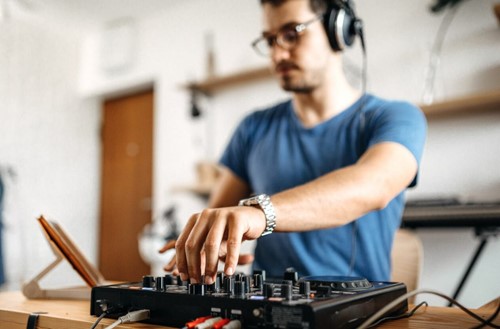
When you think of DJs, you’ll automatically think of a controller, with all its fancy equalising keys, joystick controls, turntables and buttons.
A controller is the piece of equipment you’ll spend most of your time in front of, and it’s the bread and butter of DJing. Simply put, it’s basically an all-in-one package that contains two turntables and a mixer that you can hook up to your laptop containing your DJ software.
As with all DJ equipment, there are many different options to choose from. You can go for something more classic like turntable style, more utility-based with CD style or super modern with a stand-alone controller.
A stand-alone controller is advised as being best for beginners, as this is the only thing you’ll need to go alongside your laptop. In size comparison, this is the smallest DJ set up option and often the lowest price.
The stand-alone controller includes everything from jog wheels, sliders, performance pads, mic inputs, fx functions and other built-in controls.
Some suggested companies for buying controllers are:
Mixer
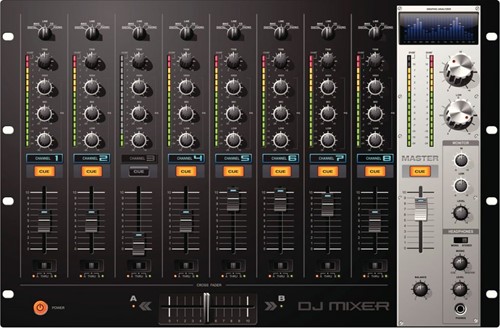
A mixer is a hardware device that doesn’t always need to be attached to your laptop and doesn’t rely on DJ software. This device can be considered an add-on that does what it says on the tin and helps to mix the sounds.
Mixers take inputs from record decks, CDs or an external sound card and help with things such as:
- transitions
- songs overlapping
- voice-overs and sound synchronisation
Mixers are there to make your life as a DJ easier. If you’re already a fully-fledged DJ and you don’t have one of these, this may be where you want to invest your budget.
Turntable Decks
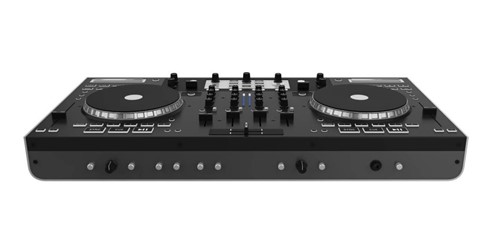
Thanks to vast online music libraries’, the need for physical records or CDs has virtually become redundant. However, if you’re looking for the old-school, authentic DJ experience, then turntables are definitely for you.
These decks require vinyl that you can mix or scratch to create your sound. They are at the higher end of the price scale when investing and require quite a bit of overall upkeep. Turntable decks also work best with a mixer, so it’s double the outlay.
However, the sound is far more traditional, so really, your budget will dictate if you are to make the investment.
CDJ decks
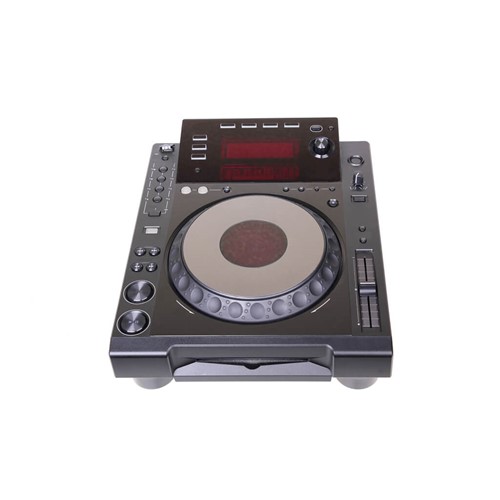
If you’re nostalgic and have a plethora of left-over CDs from the 90s and early 2000s’, then CDJ decks are a winner.
These decks come somewhere between a turntable and a stand-alone controller in terms of price. So, if you want to repurpose your CD collection, they’re a great investment.
Headphones
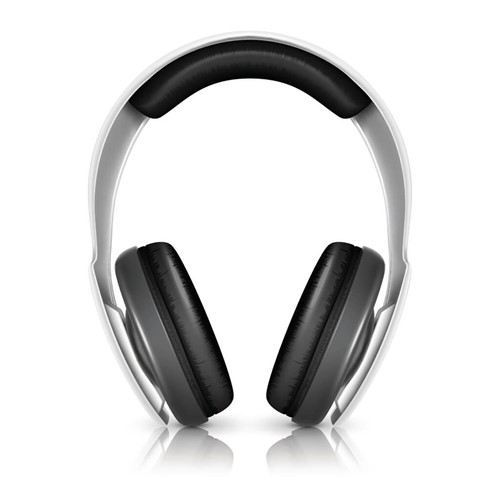
Like a controller, headphones are another iconic and essential piece of DJ kit.
Sound quality is going to be your key focus.
You need to be able to clearly hear the tracks you’re playing and if you’re mixing in a new track to ensure its beats are perfectly matched.
Alongside sound quality, you will also want to look for noise cancelling or a closed-back design pair. This will ensure you can isolate your music, especially if your chosen DJ location is in a busier part of your home or a large, noisy venue.
A few other things to consider are:
- comfort
- durability and quality
- long cable length so you can move around
- looks
Speakers
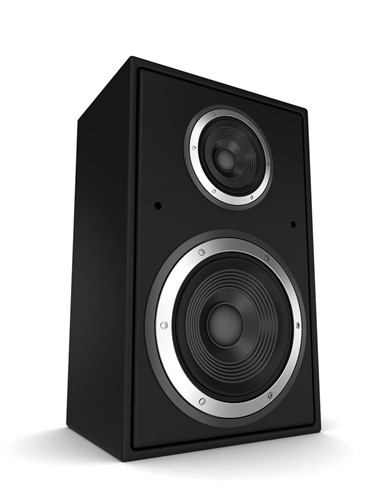
After investing in a quality device (laptop, tablet or desktop computer) and choosing your hardware (mixer, controller or CDJ), speakers will be next on your list.
You want speakers that will fit the space of your home and emit quality, sharp sounds, and minimal distortion.
Studio monitors are the best for home DJ set ups as they give the most accurate sound that goes through them, rather than enhancing the sound.
That being said, it can be a quite tricky purchase, as there are so many models on the market. Often marketers will add gimmicks or make bold claims to attract you to buy their product.
So, what do you need to look for?
- Sensitivity – measured in decibels (dB). This tells you how loud the speaker is. The higher the rating, the louder the speaker
- Power handling – measured in Watts. This is usually represented as two values, RMS and continuous / peak. RMS helps you judge the quality of the speaker
- Frequency response – measured in Hertz (Hz). This lets you know how high and low the speaker can play and considers the ‘bass’ output of the speaker.
Specialist DJ insurance from Insure4Music
After you’ve invested in an all-new home DJ set up, you’ll want to ensure it’s protected against loss, theft, and damage—especially if you intend to take the equipment out to gigs once you’ve had a bit more practice.
At Insure4Music, we offer specialist DJ and sound equipment insurance so that, if the worst happens, you’ll never bear the financial burden of replacing or fixing your music gear.
To learn more about our DJ insurance, click the link above or get a quote in minutes.
